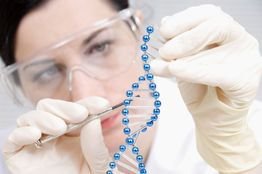
BGI Shenzhen, Reproductive and Genetic Hospital Citic-Xiangya use Next Generation Sequencing (NGS) to detect in vitro fertilized (IVF) embryos with genetic abnormalities
Singapore: China's BGI Shenzhen along with Reproductive and Genetic Hospital Citic-Xiangya has successfully applied Next Generation Sequencing (NGS) to detect in vitro fertilized (IVF) embryos with genetic abnormalities.
The successful application of preimplantation sequencing (the most advanced form of preimplantation genetic screening, PGS) opens a new chapter in the field of human assisted reproduction, providing new hope for IVF couples.
In preimplantation sequencing, seven-to-12 cells are removed from morphologically normal human embryos five days after fertilization in vitro. Embryos are subsequently cryopreserved by vitrification, and samples are analyzed by using the latest DNA technologies to detect abnormalities. Only genetically intact embryos are transferred to the uterus during the subsequent cycle, with minimal or no hormonal stimulation.
Since 2010, as a result of collaboration between BGI and Citic-Xiangya, sequenced embryos from 33 couples were transferred, and 22 pregnancies were achieved. The success rate was 66.70 percent. Up to now, 17 healthy babies have been born.
On August 24, 2012, the world's first IVF baby sequenced before implantation was born in Hunan Province, China. Five days after fertilization in vitro, 7 embryos were biopsied and all samples were shipped to BGI for preimplantation sequencing. Based on a combination of NGS and bioinformatics analysis, three embryos were found to have normal chromosomal content and two of them were selected for transfer resulting in pregnancy. The baby is now 11 months old, healthy and developing normally.
Professor Guangxiu Lu, president, Citic-Xiangya and one of the founders and pioneers in human assisted reproduction in China hailed the birth as a landmark event in human IVF. As sequencing is the most accurate method for detection of genetic anomalies, doctors can transfer the best embryos of the cohort, this way pregnancy rates may be increased and the chance of abnormalities of genetic origin decreased.
Dr Yutao Du, VP, BGI Health Group, said that with the introduction of new procedures, the cost of sequencing has decreased dramatically. Accordingly, preimplantation sequencing will become a choice for more and more IVF couples. The accuracy is increasing continuously, and new bioinformatic analysis approaches enable scientists to detect specific genetic disorders, even from single cells. Accordingly, preimplantation sequencing may have a crucial role in improving the efficiency and safety of human assisted reproduction.




